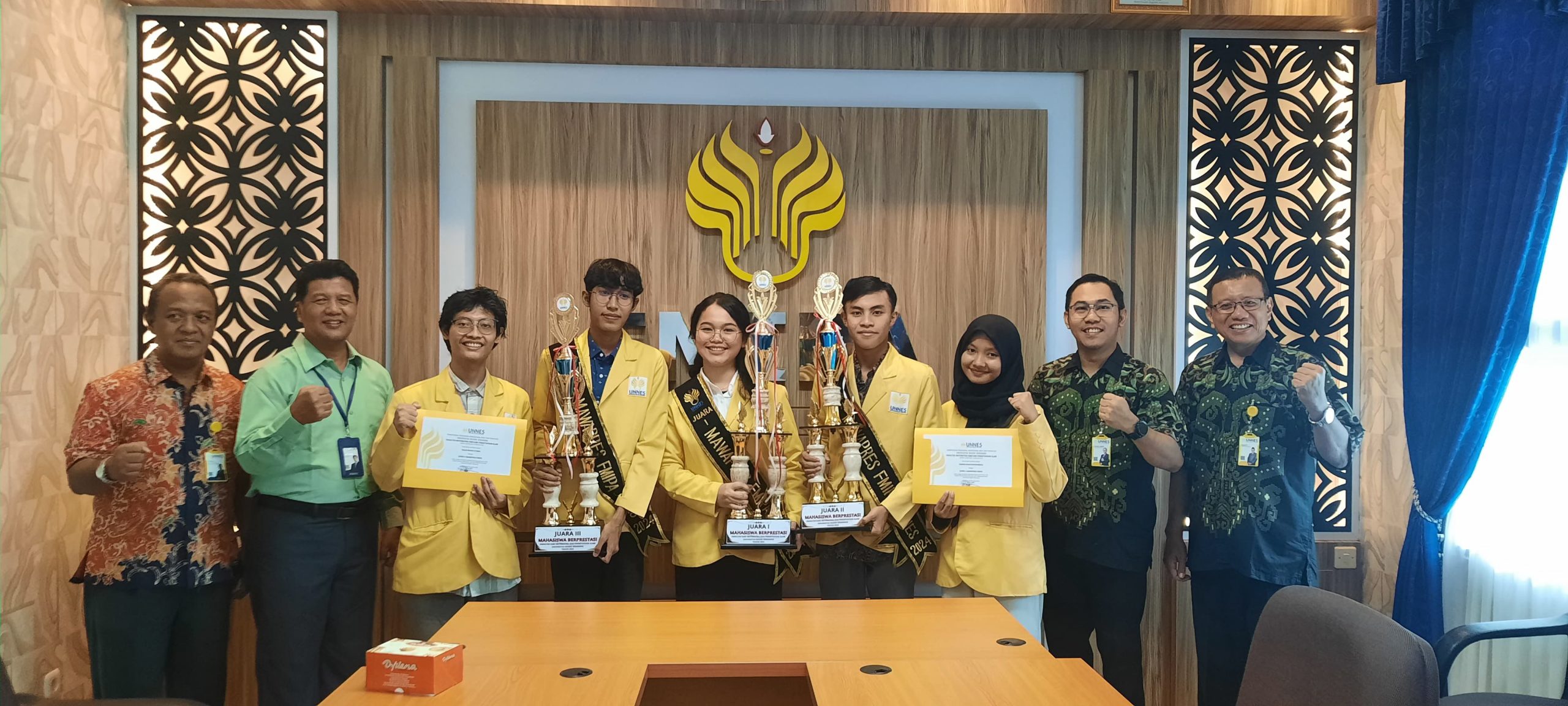
Pusat Kajian Material Maju FMIPA UNNES sukses menyelenggarakan webinar dengan tema “Karakterisasi Material Nano dan Deposisi Film Tipis Silikon Karbida pada Insulator ” pada hari Jumat, 16 September 2022 pukul 08.30-11.30 WIB. Narasumber pada kegiatan ini yakni Prof. Dr. Suriani Abubakar dari Universiti Pendidikan Sultan Idris (UPSI) Malaysia dan Dr. Budi Astuti, M.Sc dari Universitas Negeri Semarang (UNNES) Indonesia.
Kegiatan webinar diawali dengan sambutan oleh Ketua Pusat Kajian Material Maju FMIPA UNNES, Prof. Dr. Putut Marwoto, M. Si. Beliau memberikan pengantar mengenai material maju dikembangkan untuk aplikasi industri manufaktur hingga industri elektronik. Material elektronik seperti material semikonduktor misalnya silikon merupakan salah satu material maju yang banyak dikembangkan. Untuk dapat memanfaatkan dan mengembangkan material maju maka perlu rekayasa material dengan mengembangkan serangkaian teknologi diantaranya yang paling populer saat ini adalah teknologi nano. Agar dapat diidentifikasi apakah material yang dikembangkan bersifat nano maka diperlukan serangkaian karakterisasi.


Sambutan kedua oleh Dekan FMIPA UNNES, Dr. Sugianto, M.Si sekaligus membuka kegiatan webinar. Dr. Sugianto, M.Si menyampaikan bahwa sejak ditemukannya alat-alat karakterisasi perkembangan teknologi nano begitu pesat baik pada bidang elektronik, kesehatan, keamanan, dan manufakturing. Silikon karbida merupakan salah satu material yang sangat potensial untuk aplikasi dalam bidang elektronik maupun dalam bidang manufakturing.


Narasumber pertama, Prof. Dr. Suriani Abubakar menyampaikan mengenai karakterisasi nanomaterial. Dalam paparannya, Prof. Dr. Suriani Abubakar mengungkapkan bahwa sebelum memulai suatu karakterisasi, kita perlu tahu mengenai prinsip kerja suatu material, misalnya berkas elektron yang dihasilkan dari pistol elektron (filamen tungsten) akan dipancarkan ke permukaan sampel. Tumbukan ini akan menghasilkan elektron sekunder yang selanjutnya dikumpulkan oleh detektor. Detektor ini memproses dan menerjemahkan data yang dikumpulkan menjadi gambar ke layar monitor. Kontras dan fokus dari gambar yang diamati dapat disesuaikan dengan mengubah jarak kerja dan tegangan percepatan perangkat FESEM.


Selanjutnya, Dr. Budi Astuti, M.Sc menyampaikan mengenai Deposisi Film SiCOI dengan Metode Hot Mesh Chemical Vapor Deposition dan Peluang Aplikasinya. Beliau memaparkan, sistem HMCVD yang memiliki kemampuan berikut berhasil dirancang dan dibuat. Pertumbuhan lapisan tipis kubik SiC (3C-SiC) pada domain (111) terjadi pada suhu substrat yang relatif rendah. Telah dilakukan fabrikasi dan karakterisasi dioda SiC Schottky yang difabrikasi pada film 3C-SiC yang ditumbuhkan. Kedua dioda Ge/SiC dan Cr/SiC yang dibuat menunjukkan karakteristik rektifikasi yang baik.


Antusias peserta sangat besar terhadap webinar ini, dibuktikan dengan jumlah peserta aktif ± 140 peserta yang mengikuti acara ini dari awal hingga akhir. Ibu Fianti, P.hD sebagai moderator pada acara ini telah menyampaikan pengantar dan menjembatani tanya jawab antara narasumber dan peserta dengan sangat baik. Para peserta juga sangat aktif yang dibuktikan dengan ramainya kolom komentar yang ditujukan kepada para narasumber ketika sesi tanya jawab. Dengan adanya kegiatan webinar ini, diharapkan para peserta webinar memiliki wawasan yang luas mengenai karakterisasi material nano dan deposisi film tipis silikon karbida pada insulator.
Informasi selengkapnya kegiatan webinar mengenai karakterisasi material nano dan deposisi film tipis silikon karbida pada insulator dapat dilihat pada link berikut:




